|
|
|
|
Children have an amazing ability to casually ask difficult questions. If you've ever been asked that perennial question of “why?” by a child, you'll likely know how hard it can be to answer – whether how to explain something simply or because in truth you've forgotten (or never knew the answer 🤫). When the grown-ups can’t answer them, they submit these questions to the experts at The Conversation.
While many adults were seeking facts on the pandemic, children were still wondering about life’s greatest mysteries: Why don’t things move around if the Earth is spinning all the time?🌍 How much does a cloud weigh?☁️ How do you know when a volcano will erupt?🌋 How did plants and trees survive when the dinosaurs were wiped out?🦕
Of course, there were some COVID questions – profound ones, such as whether the pandemic will distract us enough to stop having wars; and ones clearly aimed at convincing parents to get a puppy for Christmas, like whether your pet could protect you from the virus.🐶
And they were still curious about kid stuff too, such as how voices work, whether witches and wizards are real (we wish!) and why there are so many
dangerous animals in Australia.🪱
Below is a round up of some of our best Curious Kids pieces from 2020. They may be submitted by pip-squeeks, but there’s plenty of insight in there for the grown-ups too.
|
Daisy Bata
Commissioning Editor
|

|
|

Khakimullin Aleksandr/Shutterstock
Rob Thompson, University of Reading
It's a lot more than you might think.
|
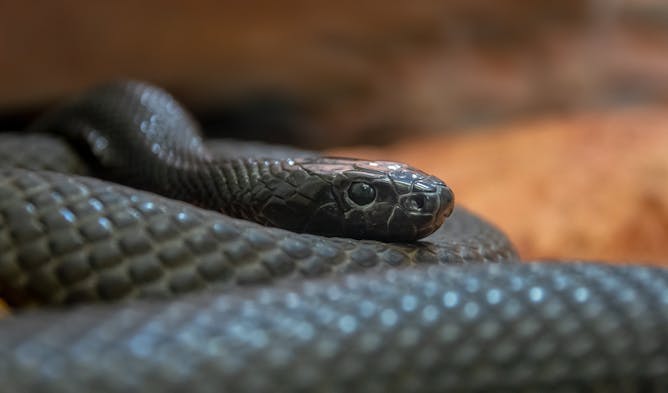
The world’s most venomous snake, the inland taipan, is only found in Australia.
Lubos Houska/Shutterstock
Louise Gentle, Nottingham Trent University
Australia is home to 20 of the 25 most venomous snakes in the world.
|
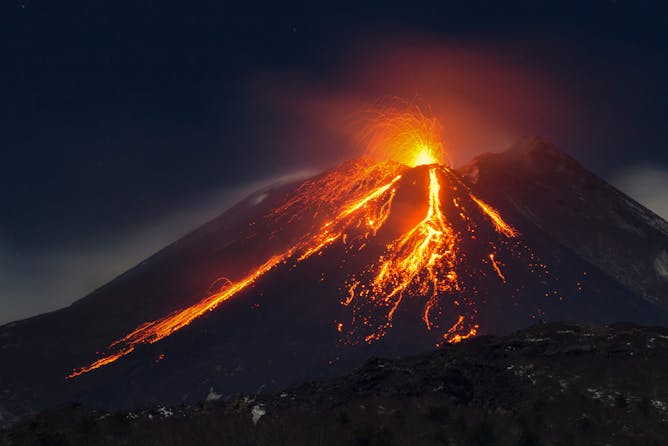
Mount Etna erupting.
Tomarchio Francesco/Shutterstock
Ian Skilling, University of South Wales
Volcanoes give lots of clues which help scientists work out if they are about to erupt.
|
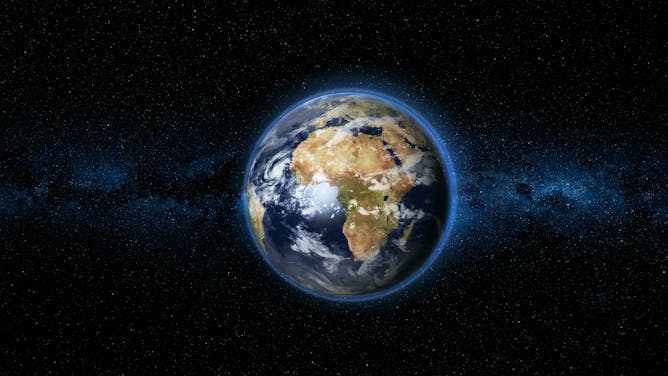
The Earth in space. Elements of image furnished by NASA.
Volodymyr Goinyk/Shutterstock
Jacco van Loon, Keele University
The Earth spins around its axis every day – but gravity keeps us firmly in place.
|
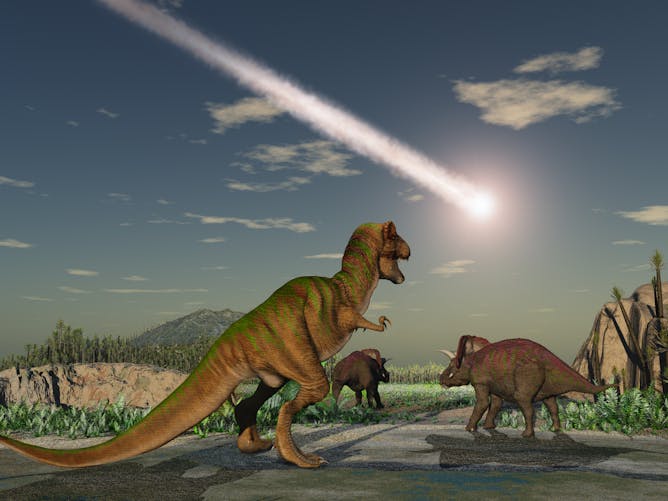
Esteban De Armas/Shutterstock
Mark Puttick, University of Bath
A mass extinction 66 million years ago killed the non-bird dinosaurs, but plants survived.
|

milatas/Shutterstock
Barry Bogin, Loughborough University
Grownups don't get taller, but they can grow in other ways.
|
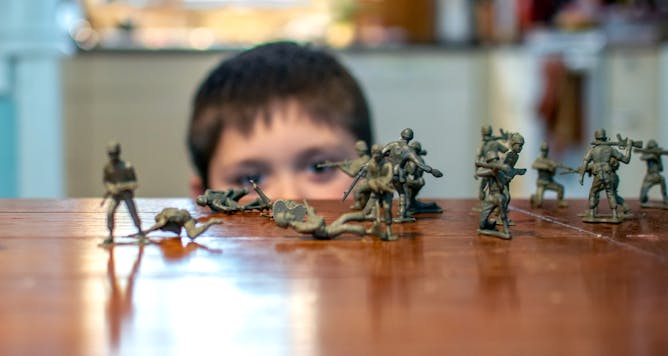
iyd39/Shutterstock
Edward Stoddard, University of Portsmouth
It is very hard to stop wars, but we must try.
|
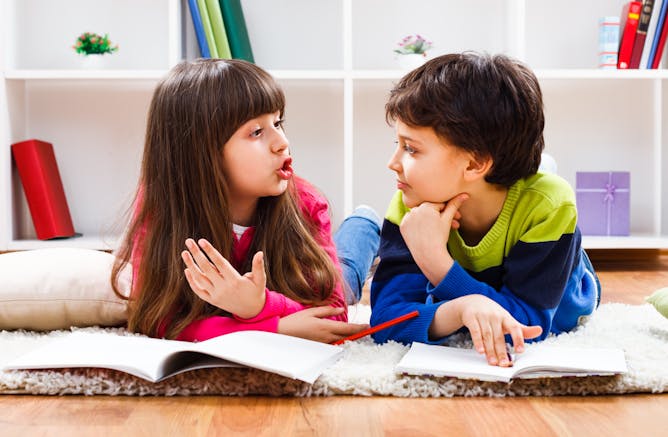
You open your mouth and sound comes out but what’s happening in your body?
InesBazdar/Shutterstock
Sally Hewat, University of Newcastle
The sound comes from our lungs and our voice box, which is at the front of the throat. Here's how it works.
|
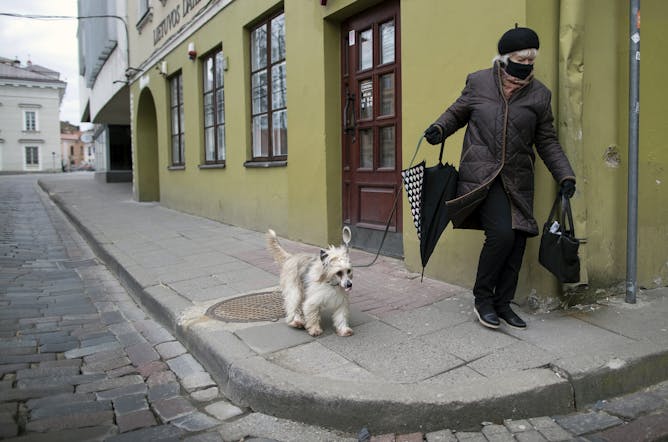
Even in quarantine, people around the world have to walk their dogs.
AP Photo/Mindaugas Kulbis
Clarissa M. Uttley, Plymouth State University
Pets might not protect us from the coronavirus, but they can help us get better.
|
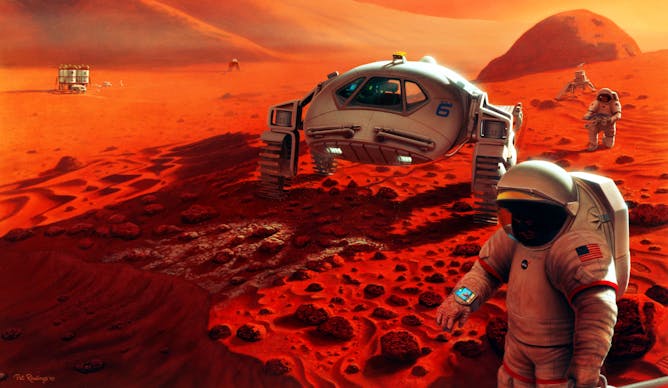
NASA/Pat Rawlings, SAIC
Adam Hawkey, Solent University
An expert explains the challenges of a mission to Mars for younger readers.
|
| |
Featured events
|

|
East Road, Cambridge, Cambridgeshire, CB11PT, United Kingdom of Great Britain and Northern Ireland — Anglia Ruskin University
|

|
Online, York, York, YO10 5DD, United Kingdom of Great Britain and Northern Ireland — University of York
|

|
East Road, Cambridge, Cambridgeshire, CB11PT, United Kingdom of Great Britain and Northern Ireland — Anglia Ruskin University
|

|
Lecture Theatre 1, Richmond Building, Portland Street, Portsmouth, Hampshire, PO1 3DE, United Kingdom of Great Britain and Northern Ireland — University of Portsmouth
|
|
|
|
| |
| |
| |
| |
| |
|
|
|
|
|
|
|